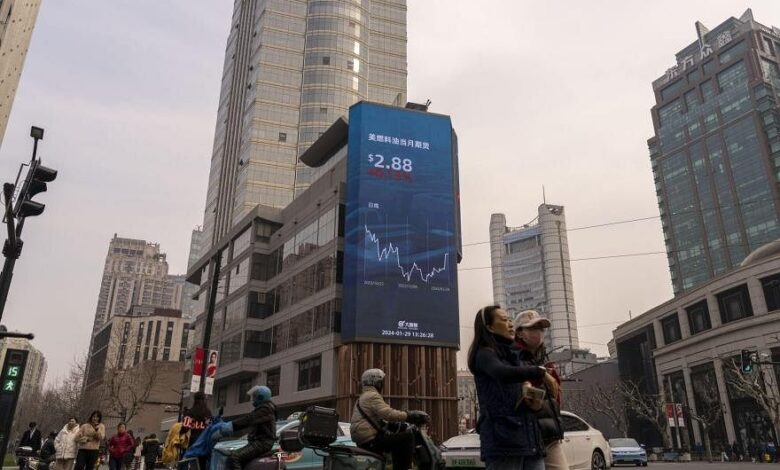Foreign direct investment into China plummets to 23-year low, Global Enterprise

NET foreign direct investment (FDI) into the Chinese mainland plummeted to a 23-year low last year, government data showed on Friday (Mar 29).
The US$42.7 billion inflow is less than a quarter of that seen in 2022. The latest result was revised up from the US$33 billion preliminary number published by the State Administration of Foreign Exchange (Safe) last month.
The net FDI, measured through China’s capital and financial accounts, reflects monetary flows into and out of the mainland connected to overseas-owned entities and used for investment in assets such as manufacturing and real estate.
A different gauge of overseas investment releases by the Ministry of Commerce shows that total utilised FDI in China tumbled 8 per cent to 1.1 trillion yuan (S$205.9 billion) in 2023.
According to Safe data, overseas entities’ securities investment in the mainland amounted to a net inflow of US$14.1 billion last year, reversing a net outflow of US$109 billion in 2022. This can mainly be attributed to a recovery in foreign investment in Chinese bonds, which recorded a net inflow of US$6.6 billion last year, reversing a net outflow of US$147.4 billion the previous year.
Chinese policymakers have rolled out a series of measures that seek to bolster the low confidence of foreign investors, including a 24-point guideline released in August that promised overseas companies would receive the same level of government support enjoyed by domestic firms.
In March, the government issued an action plan, vowing to open more areas for foreign investment, including by abolishing restrictions on foreign investment in manufacturing and reducing barriers to investment in the telecommunications and medical sectors.
However, China’s economy has been struggling to regain momentum after three years of strict measures to control the Covid pandemic. Longer-term concerns about China’s growth prospects and a deteriorating business environment fuelled by growing geopolitical tensions, notably with the US, have also dented investment.
Even so, surveys of American and European companies with operations in China indicate that investment, or at least confidence in investing, may be on the mend.
Half of the more than 300 US companies surveyed by the American Chamber of Commerce in China late last year viewed the country as one of their top three global investment priorities, a 5-percentage-point increase from the previous year’s poll that showed a sharp drop in the country’s attractiveness.
A survey of more than 500 German businesses published by the German Chamber of Commerce in China in January showed the majority of the respondents had no concrete plans to leave within the next two years, and more than half said they were planning to increase investment in the country. CAIXIN GLOBAL






